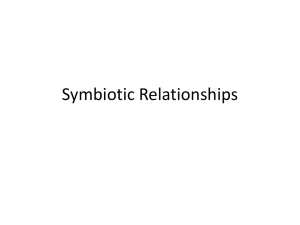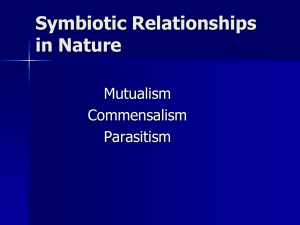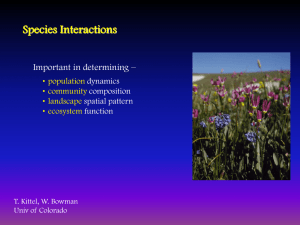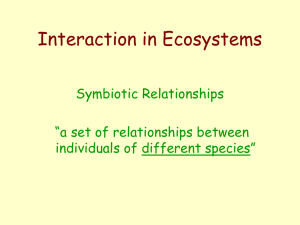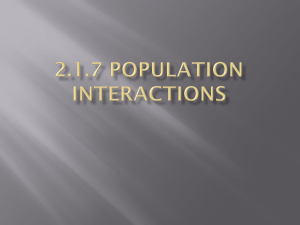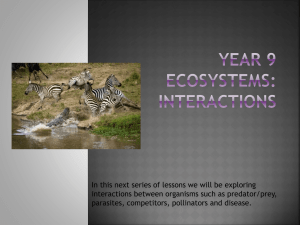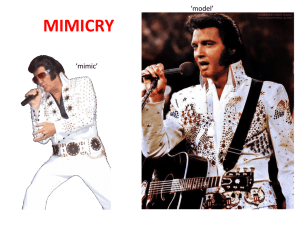Mutualism: Ants and Aphids
advertisement
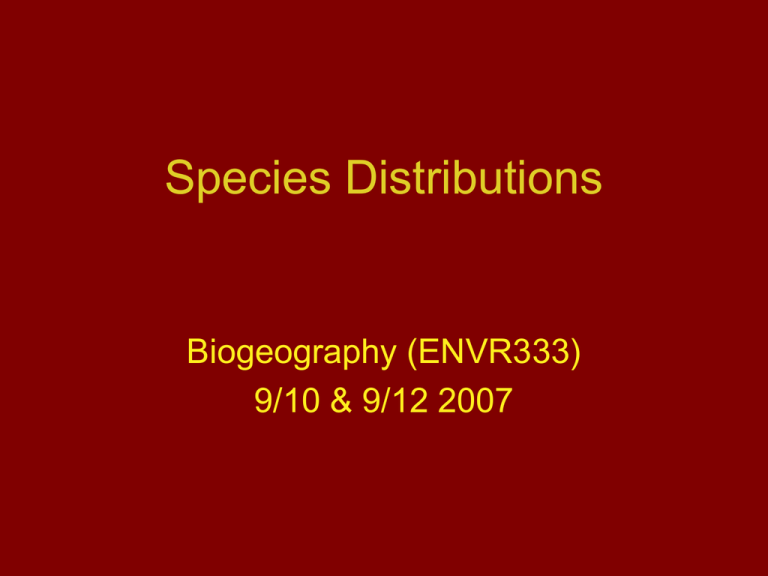
Species Distributions Biogeography (ENVR333) 9/10 & 9/12 2007 As the environment changes, species adapt to a moving target that can affect competitive situations. Species Distributions • Species Interactions – Competition – Coexistence • • • • • Mututalism Commensalism Amensalism Parasitism Mimicry – Predator-Prey • Environmental Gradients • Niches Competition • • • • • Interspecific competition Intraspecific competition Resource exploitation Interference competition Principle of Competitive Exclusion Competitive Exclusion Paramecium = single-celled, ciliated protozoan that feeds on bacteria. European starling Figure 4.4 MacDonald 2003 Figure 4.5 MacDonald 2003 Spatial niche partitioning Morphology: Oystercatchers stabber hammerer Morphology: Cichlids Mutualism: Ants and Aphids Mutualism: Lichenized Fungi Commensalism: Rhino birds Mutualism: Pollinators Pollinated Mutualism: Jays and Oaks QuickTime™ and a TIFF (Uncompressed) decompressor are needed to see this picture. Commensalism: Epiphytes Commensalism: Epiphytes Forage lichens Commensalism: Epiphytes Cyanolichens (n-fixers) Commensalism: Clown Fish/Sea Anemone Commensalism: Hitchhiking Seeds Sweet Cisely Commensalism: Hitchhiking Seeds Burdock Allelopathy Micro Parasites Macro Parasites Batesian Mimicry Batesian Mimicry red on yellow kill a fellow, red on black won’t hurt jack Scarlet King Snake Coral Snake Batesian Mimicry Quick Time™ a nd a TIFF ( Un co mpr es sed ) d eco mp res so r ar e n eed ed to s ee this pi ctu re. QuickTime™ and a TIFF (Uncompressed) decompressor are needed to see this picture. Quick Time™ a nd a TIFF ( Un compr ess ed ) d eco mp res so r ar e n eed ed to s ee this pi ctur e. QuickT ime™ and a T IFF (Uncompressed) decompressor are needed to see t his picture. From left to right are the Common Wasp, Vespula vulgaris, and some of its mimics - the Hornet Moth, Sesia apiformis, the Wasp Beetle, Clytus arietis, and the Hoverfly, Syrphus ribesii. Figure 4.1 MacDonald 2003 Predator-Prey Relationships stenophagous Chalhill Blue Butterfly Predator-Prey Relationships Figure 4.2 MacDonald 2003 Figure 4.3 MacDonald 2003 Figure 4.7 MacDonald 2003 Figure 4.9 MacDonald 2003 Ecocline or Ecotype? Summary • Interactions: many and varied • Distributions: physical/biological factor • Role of gradients and niches • Not locked into place
